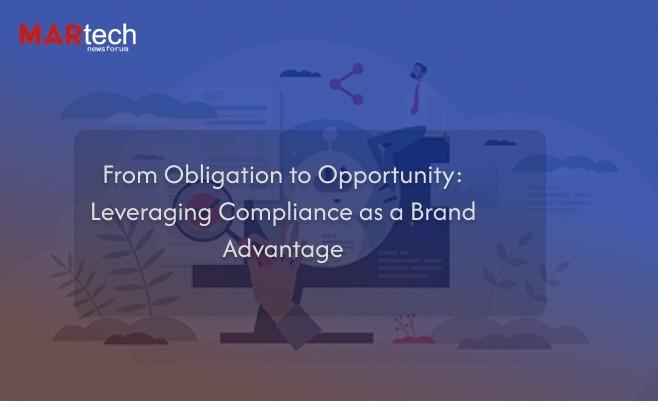
In a time when data privacy, ethical AI, and regulatory scrutiny are reshaping the digital marketing landscape, compliance is no longer just a checkbox — it’s a strategic differentiator. Forward-looking brands are beginning to treat compliance not as a constraint, but as a powerful opportunity to build trust, differentiate their brand, and unlock long-term customer loyalty.
For years, marketing teams viewed regulations like GDPR, CCPA, and new AI governance laws as roadblocks — costly requirements that slowed innovation. But the narrative has shifted. Today, transparency, accountability, and ethical stewardship are emerging as the new brand currencies in an increasingly skeptical consumer landscape.
Compliance in the Age of Digital Distrust
Consumers are more informed — and more skeptical — than ever before. Data breaches, dark patterns, and misused personal information have eroded trust in digital platforms. In response, global regulators are tightening their grip, and compliance is taking center stage across marketing, CX, and product teams.
But the true leaders aren’t waiting for regulators to act. They’re proactively designing their systems, messages, and experiences around principles like:
- Privacy by design
- Consent-based engagement
- Algorithmic transparency
- Inclusive and ethical data practices
These brands aren’t just following the rules — they’re building reputations as responsible, customer-first organizations.
The Shift: From Legal Mandate to Marketing Strategy
The shift in mindset is clear: compliance is moving from legal departments to boardrooms and brand strategies.
Smart marketers are beginning to ask:
- How can we make compliance part of our customer promise?
- Can we turn transparency into a competitive edge?
- How do we communicate trust in every interaction?
This shift is driving tangible action in areas such as:
- Privacy-centric UX: Designing interfaces that make it easy for users to manage their data and preferences.
- Ethical AI labeling: Disclosing when and how AI is used in content creation or customer service interactions.
- Clear language policies: Moving away from legal jargon to explain data usage in terms customers understand.
- Inclusive data policies: Actively minimizing bias in algorithms and data sets to create fairer outcomes.
By embedding these principles into customer touchpoints, brands are turning formerly “dry” compliance topics into sources of differentiation and engagement.
Marketing the Message of Responsibility
It’s not enough to be compliant — brands must also show it in ways that resonate with customers. Leading companies are now folding trust-based messaging into their marketing and communications strategy:
- Ad campaigns focused on data responsibility
- Microcopy and onboarding flows that reinforce user control
- Content marketing that educates consumers about their rights
- Third-party certifications or trust seals prominently displayed
Rather than hiding behind fine print, these brands are bringing compliance to the surface — turning responsibility into a visible part of the customer experience.
Trust as a Growth Engine
The results are hard to ignore. Research shows that privacy-conscious consumers are more loyal, more engaged, and more likely to recommend brands they believe are trustworthy.
Some recent shifts:
- 74% of global consumers say they’re more loyal to companies that protect their data.
- Compliance-forward brands have seen up to 20% higher engagement rates in opt-in marketing channels.
- AI transparency disclosures have improved click-through rates by signaling ethical intent.
In an age where algorithms drive interactions and data is the fuel of personalization, trust becomes the bridge between marketing strategy and sustainable growth.
Operationalizing Trust Across the Martech Stack
Turning compliance into competitive advantage isn’t just about front-end messaging. It requires deep integration across the martech ecosystem — from how data is collected and stored to how campaigns are automated and measured.
Key areas of investment include:
- Consent management platforms that are fully integrated into CRM and ad systems.
- Ethical data governance policies that guide data use across personalization, targeting, and analytics.
- AI governance frameworks that ensure fairness, transparency, and auditability of automated decisions.
- Privacy-first analytics that respect user rights while still delivering performance insights.
This requires alignment between marketing, legal, product, and data science teams — and a shared commitment to treating trust as a business asset, not just a legal obligation.
The Future: Responsible Marketing as a Brand Imperative
Looking ahead, regulatory requirements will only grow stricter — from global AI laws to new digital advertising codes. But for progressive brands, this is not a threat — it’s a chance to lead.
Those who embrace compliance as part of their identity will stand out in a crowded marketplace. They’ll build brand equity not just on creative excellence, but on ethical execution. And they’ll be better positioned to earn and keep the trust of customers in an increasingly skeptical world.
The bottom line? In 2025 and beyond, compliance is no longer just about avoiding fines. It’s about earning trust, driving loyalty, and creating a competitive edge. What was once an obligation is now one of the most powerful opportunities in modern marketing.
About This Article
This feature is part of Martech’s ongoing series on responsible innovation, where we explore the intersection of technology, trust, and transformation across the digital marketing ecosystem.